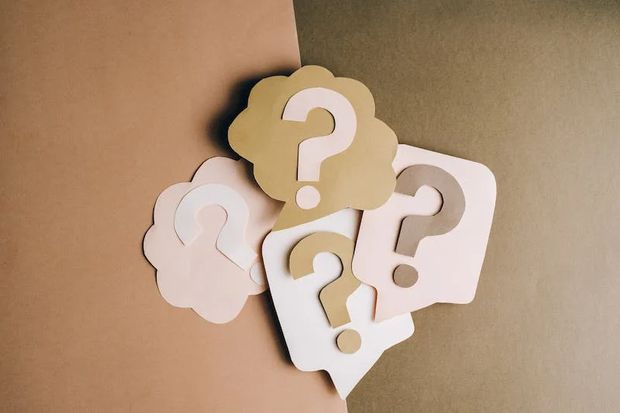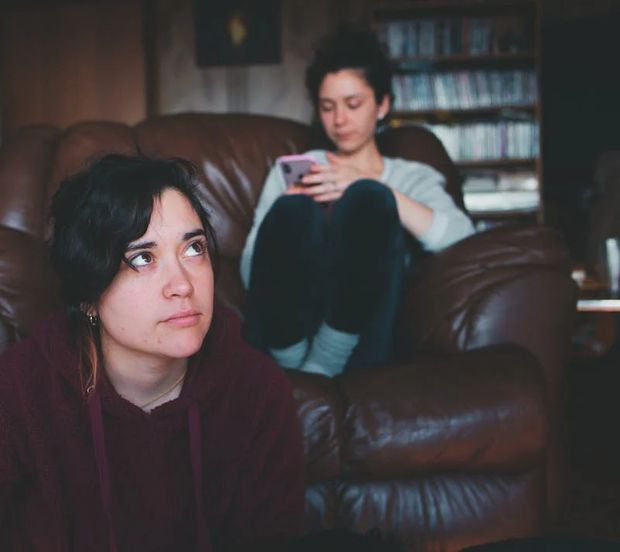There are many different reasons why people decide to try polyamory. Some people may be drawn to the idea of having multiple romantic and/or sexual relationships at the same time because they feel that it allows them to have a greater sense of personal freedom and autonomy.

They may feel that traditional monogamy is too restrictive or confining and that polyamory allows them to explore different aspects of their identity and desires in a way that is not possible within a monogamous relationship.
It is often that people ask themselves, what are the important questions to ask before entering a poly relationship?
Most questions revolve around the ideas of emotional and physical availability, sexual limits and rules as well as relationship boundaries with the multiple partners involved. Another reason why people may choose to try polyamory is that they are open to the idea of non-monogamy and want to explore the possibility of having multiple partners.
This may be because they are curious about different kinds of relationships and want to see what it is like to have more than one romantic or sexual connection at the same time.
There are also some people who choose to try polyamory because they believe that it allows for more honest and open communication within relationships.
In a polyamorous relationship, all parties involved are aware of and consent to the existence of other romantic and/or sexual partners. This can create a sense of transparency and honesty within the relationship, as there is no need for secrecy or deceit.
It is important to note that everyone has their own unique reasons for choosing to try polyamory, and it is not uncommon for people's reasons to change or evolve over time.
How do you start a polyamorous relationship?
There are a few key signs that you might be ready to explore polyamory:
- You have a strong sense of self-awareness and self-acceptance. In order to be successful in a polyamorous relationship, it's important to be self-aware and to understand your own motivations, desires, and boundaries. If you are comfortable with yourself and have a good sense of what you want and need from your relationships, you may be more ready for polyamory.
- You are comfortable with open and honest communication. Polyamorous relationships require a high level of communication and transparency, and it's important to be comfortable discussing your needs, boundaries, and expectations with your partners. If you are able to communicate openly and honestly, you may be more ready for polyamory.
- You have good conflict-resolution skills. In any relationship, conflicts and difficulties will inevitably arise, and it's important to be able to navigate these challenges effectively. If you have good conflict-resolution skills and are comfortable working through challenges with your partners, you may be more ready for polyamory.
- You are able to manage your emotions effectively. Polyamorous relationships can bring up strong emotions, including jealousy and insecurity. If you are able to manage your emotions effectively and have strategies in place for handling difficult emotions, you may be more ready for polyamory.
- You are open to learning and personal growth. Polyamorous relationships can be complex and challenging, and it's important to be open to learning and growing as a person in order to navigate them effectively. If you are open to learning and personal growth, you may be more ready for polyamory.
What questions should I ask in a poly relationship? Top questions
Asking yourself important questions before entering into a polyamorous relationship is crucial because it helps you to understand your own motivations, needs, and boundaries, as well as to consider the potential challenges and complexities of polyamory.
One reason that these questions are important is that polyamorous relationships can be challenging to navigate, and it's important to be prepared for the potential difficulties that may arise.

Managing multiple relationships can be time-consuming and emotionally challenging, and it's important, to be honest with yourself about whether you have the resources and emotional capacity to handle this level of complexity.
These questions will help you ultimately to determine if polyamory is the right choice for you and to set healthy boundaries and expectations for your relationships.
Below there is a list of the most important questions to consider before entering a poly:
- Why do you want to enter into a polyamorous relationship?
It's important to understand your motivations and goals for being in a polyamorous relationship. Are you seeking more love and connection, or are you trying to fulfil a specific desire or need?
Understanding your motivations can help you to navigate the challenges and complexities of polyamory. - What are your relationship goals and desires?
It's important to be clear about what you want out of a relationship and to communicate this to potential partners. Understanding your own goals and desires can help you to find partners who are a good fit for you. - How will you communicate and negotiate boundaries with your partners?
Communication is key in any relationship, but it is especially important in a polyamorous relationship where there may be multiple partners and dynamic relationships.
Make sure that you are comfortable discussing and negotiating boundaries with your partners, and be prepared to have ongoing conversations about your needs and expectations. - How will you manage your emotions and navigate jealousy and insecurity?
Polyamory can bring up strong emotions, including jealousy and insecurity. It's important, to be honest with yourself about how you might handle these emotions and to have strategies in place for managing them. This might include setting boundaries, practising self-care, or seeking support from a therapist or support group. - How will you prioritise and balance the needs of your multiple partners?
Managing multiple relationships can be challenging, and it's important to be mindful of the time and energy you have available to devote to each relationship. Make sure that you are comfortable with the balance of time and attention that you are able to give to each partner, and be honest with yourself and your partners about your limitations.

- How will you handle conflicts and difficulties that may arise in your relationships?
All relationships have their ups and downs, and it's important to be prepared to navigate the challenges that may arise in a polyamorous relationship. Make sure that you have a plan in place for handling conflicts and difficulties, and be open to seeking outside support if needed. - How will being in a polyamorous relationship impact your other relationships and commitments?
It's important to consider how being in a polyamorous relationship might affect your time, energy, and emotional availability, as well as how it might be received by other people in your life.
You may also want to think about how being in a polyamorous relationship might affect your financial and logistical arrangements, such as how you share living spaces and resources. - How will you handle the potential for stigma or judgment from others about your polyamorous relationship?
It's important to recognise that being in a polyamorous relationship can sometimes lead to stigma or judgment from others who may not understand or accept this type of relationship.
Finding a supportive community who are also in polyamorous relationships, or who are supportive of this type of relationship, can help you feel accepted.
If the stigma or judgment from others is causing you significant stress or distress, it may be helpful to seek support from a mental health professional.
Lastly, focusing on your own happiness and well-being is vital, regardless of what others may think.

* A little disclaimer, it’s important to remember that you have the right to choose the relationship structure that works best for you and that you don't have to justify your choices to others.

- How will you ensure that my partners are aware of and comfortable with your other relationships?
It's important to be open and honest with your partners about your other relationships. This may involve having regular conversations about the status and dynamics of your various relationships, as well as discussing any concerns or boundaries that arise.
Practice consent and respect in all of your relationships, including by seeking and obtaining the consent of your partners before pursuing any new relationships. Good consent is an essential part of any healthy relationship, and it's important to ensure that all of your partners are fully informed and consenting to your other relationships.
Each person's boundaries and comfort levels may be different, so it's important to respect the boundaries of your partners and avoid pushing limits.
Lastly, regular check-ins with your partners can help ensure that everyone is feeling comfortable and satisfied in the relationship. - How will you handle any challenges that may arise around different levels of commitment or exclusivity in your relationships? How emotionally and time-wise available are you?
Managing different levels of commitment or exclusivity in polyamorous relationships can be challenging, as it requires clear communication, negotiation, and boundary-setting.
Being flexible is also essential. Remember that relationships and desires can change over time, and it is important to be open to communication and negotiation as needed to ensure that everyone's needs are being met. - What kind of relationship do you want? Is it a solo poly? Hierarchical? Poly relationship anarchy?
- Do your partners like or dislike each other?
- What are you looking for in a partner/s?
What sexual safety questions should I ask in a poly relationship?
Establishing clear rules and limits is key. Being able to ask and answer the following questions about sexual safety in a polyamorous relationship is crucial because:
- To be protected against sexually transmitted infections.
- To ensure emotional and physical safety. Engaging in sexual activity can be an intimate and vulnerable experience, and it is important to ensure that all parties feel emotionally and physically safe.
- Clear communication about sexual safety can help to foster trust and respect within a relationship, as it shows that everyone is taking steps to protect one another's physical and emotional well-being.
- To prevent misunderstandings and conflicts.

- How will I handle any potential challenges around intimacy and sexual health in my relationships?

- Do you, your partners and their partners test for a complete list of sexually transmitted diseases often?
- What methods do you use to mitigate the potential risks of pregnancy and sexually transmitted infections when sexually active in your poly relationships?
- Are there any sexual activities that you engage in that are outside the norm and that you would require me to be willing to try or show interest in for us to have a sexual relationship?
- Would you be willing to talk about the potential risks associated with different sexually transmitted infections before we make a final decision about the type of contact we have, or are your stated preferences personal boundaries that you prefer not to discuss?
This list is not exhaustive, so it's important to ask and consider your own personal concerns. However, if you're looking for a starting point and want to ensure that you've covered some basic considerations, this list may be helpful.
Final Thoughts
Ultimately, the best way to know if you are ready for polyamory is to spend some time exploring your own motivations, needs, and boundaries and to be honest with yourself about what you are able and willing to handle.
If you feel ready and excited to explore polyamory, take some time to go deeper in the process of answering all those essential questions, as it would help you build your desired relationship/s.
By doing this, you will be able to set healthy boundaries, navigate potential challenges, and ensure that your relationships are fulfilling and meaningful.
